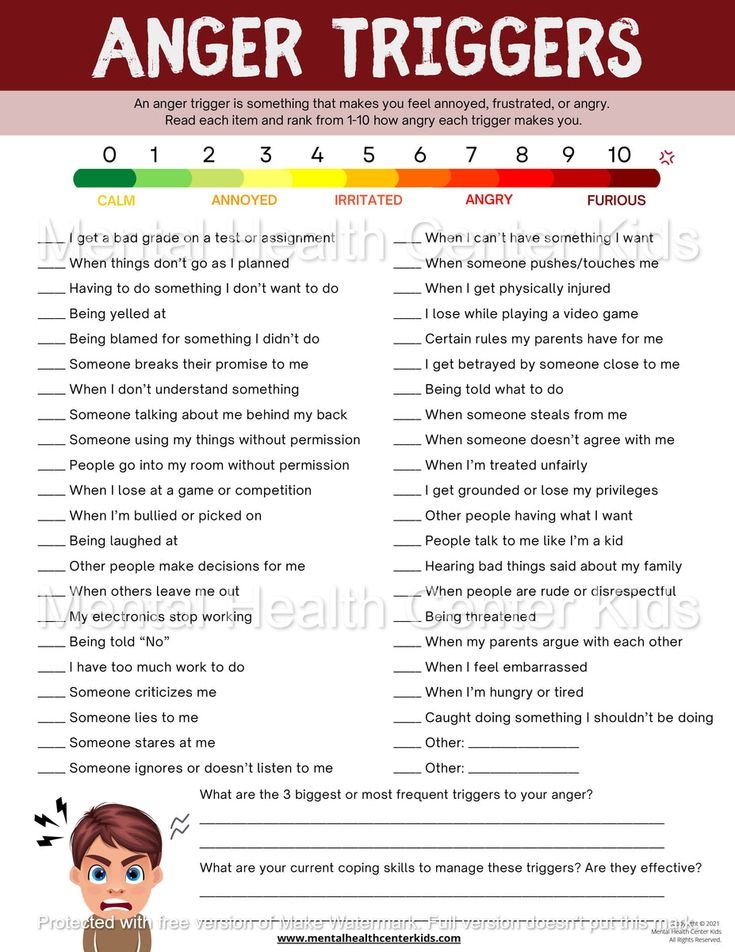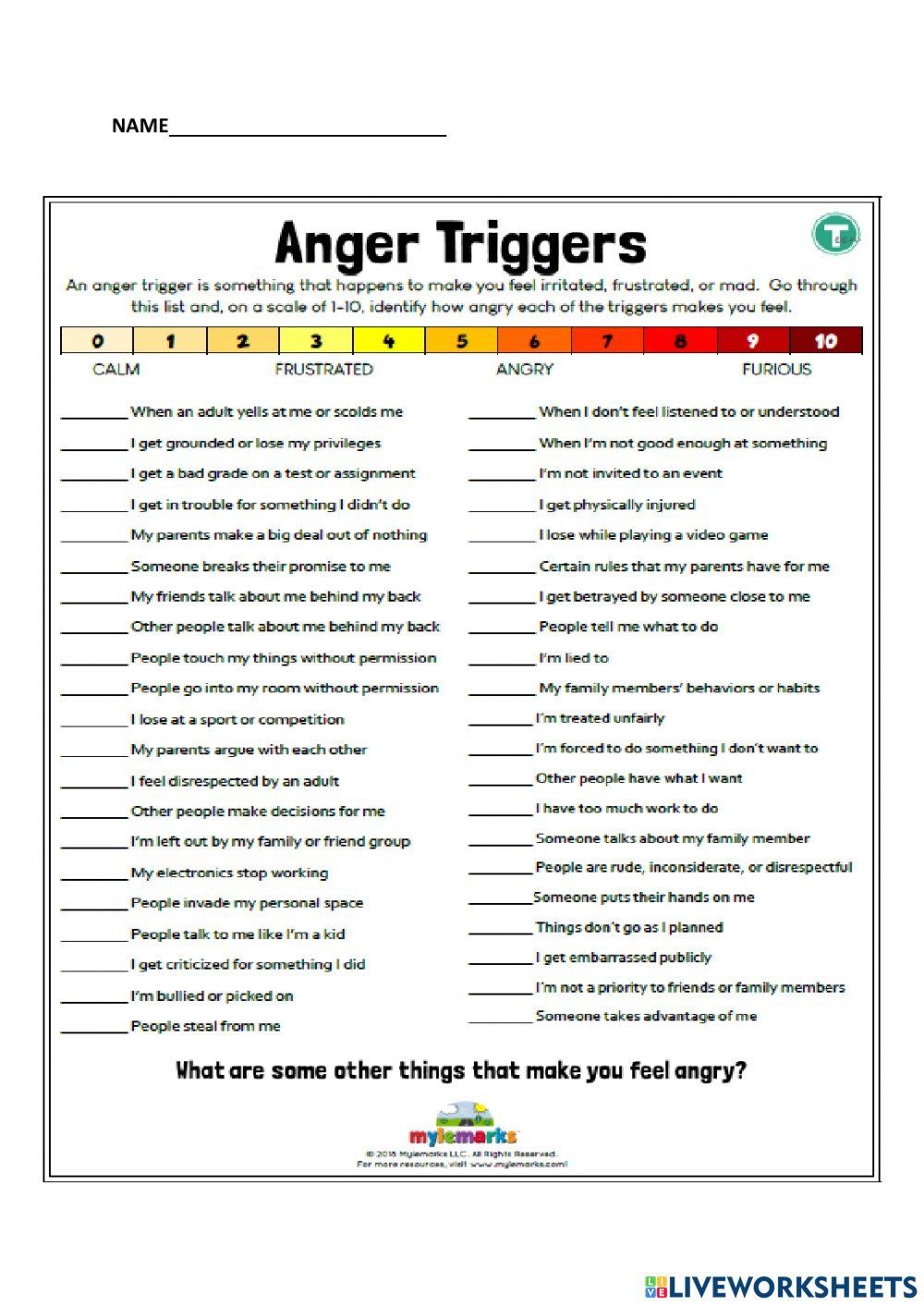Anger is a natural emotion that everyone experiences from time to time. However, it’s important to understand what triggers our anger so that we can better manage it. By identifying our anger triggers, we can learn how to respond in a more productive and healthy way.
When we are able to recognize the things that make us angry, we can take steps to address them before they escalate. This can lead to improved relationships, better communication, and overall mental well-being.
Anger Triggers Worksheet
One way to identify your anger triggers is by using an anger triggers worksheet. This worksheet typically consists of a list of common triggers such as stress, frustration, criticism, or feeling overwhelmed. You can use this worksheet to reflect on past situations where you felt angry and identify the specific triggers that led to those feelings.
By filling out the worksheet, you can gain insight into patterns and recurring themes that trigger your anger. This can help you develop coping strategies and techniques to manage your anger more effectively in the future.
It’s important to remember that everyone’s anger triggers are unique, so what works for one person may not work for another. The key is to be self-aware and open to exploring different methods of coping with anger.
Once you have identified your anger triggers, you can work on developing a plan for how to respond when faced with those triggers. This may involve deep breathing exercises, taking a break, or seeking support from a therapist or counselor. The important thing is to find healthy ways to express and manage your anger without causing harm to yourself or others.
Remember, it’s okay to feel angry, but it’s how we choose to respond to that anger that makes all the difference. By using an anger triggers worksheet and taking proactive steps to manage your anger, you can improve your emotional well-being and cultivate healthier relationships.
In conclusion, understanding your anger triggers is an important step in learning how to manage your anger effectively. By using tools like an anger triggers worksheet, you can gain insight into what sets you off and develop healthy coping mechanisms. Don’t be afraid to seek help if you need it, and remember that it’s okay to ask for support. With time and practice, you can learn to navigate your anger triggers in a way that promotes peace and harmony in your life.

